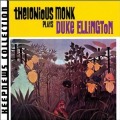Doug Ramsey's Blog, page 3
February 11, 2011
Ack Värmeland, Du Sköna
At a jam session a couple of nights ago, someone called "Dear Old Stockholm." I suggested that we play it in the unaltered form of the Swedish folk song that Stan Getz recorded in Stockholm 60 years ago.
The bass player said, "Huh?"
"It was a folk song?" said the pianist.
Many musicians and listeners are under the impression that Miles Davis wrote the song. There is also a general belief that it came equipped with the four bars that Davis inserted. The critic Bob Blumenthal has called that section "static chordal motion." The modification may have been at Gil Evans' suggestion when Davis recorded the piece for Blue Note in 1954. Think of the shimmering hanging chords in so many Evans orchestrations. Davis' 1956 Columbia quintet version with John Coltrane also uses the annexed section.
I argued at the session that although the static motion (I love the self-contradiction in that term) makes for greater sophistication, it sullies the simplicity and purity that attracted Getz to the tune in the first place. So, we mentally erased the four static-motion bars in the fake book lead sheet and returned the song to its original state. I'm not sure that all of the jammers went away convinced they'll play it that way from now on, but we had a good time with it.
Whoever put together the fake book gives writing credit to "Varmeland." I suppose it is[image error] possible that there is a Swedish composer named Varmeland, but if there is he didn't write "Dear Old Stockholm." The AABA melody, with its distinctive four-bar bridge, is a beloved traditional song that goes back at least as far as the early 1800s. Its name is "Ack Värmeland, Du Sköna." Värmeland, sometimes spelled Värmland, is a province in southwest Sweden on the border with Norway. It is noted for its beauty (see the picture). Here are three versions of the song, first in its unadulterated form by the imposing singer and actress Zarah Leander (1907-1981) in a 1965 television program.
Stan Getz recorded the song for the Swedish label Metronome during his 1951 tour of Scandinavia. His rhythm section was pianist Bengt Hallberg, who created an exquisite solo; bassist Gunnar Johnson; and drummer Jack Noren. When Roost issued the record in the US, Getz renamed it "Dear Old Stockholm." That recording is hard to find, but the track is available as an MP3 download. Getz's treatment of the melody helped earn him the nickname "The Sound." Getz is followed by Monica Zetterlund (1937-2005), with the brilliant accompanist Jimmy Jones on piano.
For one more interpretation among the many on record, here is the great Swedish tenor Jussi Bjorling (1911-1960) in a video illustrated with scenes of Värmeland.
On the off chance that you don't understand Swedish, here is a translation into English.
Oh Värmeland, you beautiful, you magnificent land
You crown jewel among Sweden's provinces
And If ever I should reach the Promised Land
I would still return to my beloved Värmeland.
If one day I take me a bride from Värmeland
I know it's something I shall never regret.
For there I want to live, there I want to die
If one day I take me a bride from Värmeland
I know it's something I shall never regret
(translation provided by Ulrich Menzel)
Glad att lyssna på dig (Happy listening to you)
February 10, 2011
Terry Teachout One-Ups Rifftides
Teachout found video of one of the most unlikelyand most delightfulperformer pairings imaginable. To see it, go to Terry's blog, About Last Night.
Then hurry back.
Other Matters: Language, Ya Know? (From The Archives)
We in the Rifftides Department Of Language Reform realize that it has been only a year since this item ran. But it failed to change peoples' lousy usage habits, so here it is again. This time, please pay attention.
The Rifftides Department Of Language Reform (DOLR) has been neglecting its duties. Its members claim that their failure to stop the misuse of "absolutely" and "no problem" discouraged them. At a staff meeting on the subject, the DOLRers moaned that they despair of succeeding where Fowler, Strunk, White, Bernstein, Ciardi and other titans of proper English usage have failed. They pointed out that people still say, "ya know" every few seconds; still say and write, "they" when they should use, "he" or "she;" millions still bloat their sentences with "on a daily basis" and "on a national basis," wasting words when they could streamline with, "daily" and "nationally."
"Never give up," I told them. "It's God'sor Webster'swork.""Maybe we're being too fussy, too pedantic," they said. "Maybe the language is just taking its evolutionary course, and what sounds wrong today will be right tomorrow."
"Shut up and watch this," I explained.
To learn more about the poet Taylor Mali, go here. Thanks to Bobby Shew for calling this delightful wig bubble to our attention.
Compatible Quotes: On Language
Language is the dress of thought.Samuel Johnson
The great enemy of clear language is insincerity. When there is a gap between one's real and one's declared aims, one turns, as it were, instinctively to long words and exhausted idioms, like a cuttlefish squirting out ink.George Orwell
Language is the light of the mind.John Stuart Mill
Mechanical difficulties with language are the outcome of internal difficulties with thought.Elizabeth Bowen
The great thing about human language is that it prevents us from sticking to the matter at hand.Lewis Thomas
I wish people who have trouble communicating would just shut up.Tom Lehrer
February 8, 2011
Recent Listening: Russell Malone
Russell Malone, Triple Play (MaxJazz). The warmth, conversational phrasing and lack of hurry in[image error] Malone's guitar work find space and congeniality in the spare background of David Wong's bass and Montez Coleman's drums. In the absence of another chording instrument to collaborate or contend with, Malone is free to make harmonic choices without concern for clash or collision. As the guitarist observes in his liner comments, Wong abets him with "great notes"..."good time" and taste. Coleman's snare drum accents and cymbal splashes color the proceedings without calling undue attention to themselves or disrupting the flow.
Malone's repertoire here is an assortment of his compositions, jazz tunes by others and standards. With its boogaloo inflections, his spunky "Sweet Georgia Peach" seems to allude to the pop funk of the 1970s. Like many of Malone's originals, "Pecan Pie" and "Pocketwatch" have overtones of nostalgia and reflection. He radiates joy in "Butch and Butch," a blues from Oliver Nelson's 1961 The Blues and the Abstract Truth. He revives "Tailfeathers" from Patrão Ron Carter' 1980 album featuring Chet Baker and Kenny Barron. He lets Cole Porter's melody tell its own story as he caresses the 1939 ballad "Do I Love You?" then ends with a series of astringent ascending figures that falls away into the reassurance of a major chord. It is a typical Malone study in contrast.
More Recent Listening reviews to come.
February 3, 2011
Other Places: John McNeil's Backbone
It is known in jazz circles, particularly in New York City, that the trumpeter, composer,  bandleader and teacher John McNeil maintains his career through the onslaught of a disease that has the potential to disable him. A lengthy profile of McNeil by journalist, educator and pianist Ben Waltzer gives insight into the disorder McNeil inherited and how he battles and accommodates its depredations. The piece, "John McNeil's Backbone," is on Waltzer's blog, A Hundred Tacks. Here is an excerpt.
bandleader and teacher John McNeil maintains his career through the onslaught of a disease that has the potential to disable him. A lengthy profile of McNeil by journalist, educator and pianist Ben Waltzer gives insight into the disorder McNeil inherited and how he battles and accommodates its depredations. The piece, "John McNeil's Backbone," is on Waltzer's blog, A Hundred Tacks. Here is an excerpt.
Typically droll and self-deprecating, McNeil reaches for humor, often of the dark sort, whenever possible. (Recovering in the hospital recently from a staph infection that only a single type of antibiotic could kill, he said, "It's showing signs of becoming totally drug resistant, at which point it'll be like the 19th century, like, 'Bye.'") But beneath his conviviality lurk strains of disharmony. McNeil is struggling. He always has.
Rediscovery, his latest recording, doesn't show it. New York Times critic Ben Ratliff called his recent playing "astonishing in its harmonic acuity." This wasn't always the case, and not for lack of talent or skill. McNeil has Charcot-Marie-Tooth disease, a painful genetic disorder of the peripheral nerves that affects muscle control.As if concocted to beset trumpet players, the degenerative condition has, among other complications, attacked his diaphragm, integral to blowing air through the horn; his facial muscles, which help produce tone and timbre; his tongue, which controls articulation; and his fingers, needed to work the trumpet's valves. The recurrence of Charcot-Marie-Tooth diseaseit comes in waveshas forced McNeil to quit playing altogether several times since he came on the jazz scene in the mid-1970s. At times, he's had to use a laundry rack to support his trumpet while practicing. He had a dental bridge built to refocus his embouchure. He learned to play with his left hand, to give him an alternative when his right hand won't cooperate. And in an art that prizes timing, the degeneration of his reflexes has demanded he play slightly early so the notes arrive on time.
Now, his performing career is on the upswing again. But he remains on guard, because as long as he can remember, his body and his soul have been enemies.
To read all of Waltzer's McNeil profile, go here. Since publication of the piece, McNeil and tenor saxophonist Bill McHenry have released a successor CD to Rediscovery. Rifftides reviewed Chill Morn He Climb Jenny in December. To read the review, click here.
In case you missed it when we posted it in October, here's a live version of one of the tunes the McNeil-McHenry quartet included in that album recalling west coast jazz. It's a popular song from 1945 that Gerry Mulligan and Chet Baker recorded in the early 1950s.
February 2, 2011
Other Places: Reprieve In Detroit
As 2010 wound down, it appeared that the venerable Detroit jazz club Baker's Keyboard Lounge might be sold to someone who would make it into a dollar store. That sent a shock through the city's jazz community, which has heard major musicians at Baker's for more than three-quarters of a century. As Mark Stryker reported last week in The Detroit Free Press:
shock through the city's jazz community, which has heard major musicians at Baker's for more than three-quarters of a century. As Mark Stryker reported last week in The Detroit Free Press:
Baker's has been integral to Detroit's cultural identity as a jazz mecca for so long, it's hard for musicians, aficionados and even casual fans to conceive of the city without it. Detroit-born saxophone star James Carter*, who grew up inspired by the heroes he heard at Baker's, calls it "holy ground."
"You join this caravan of cats who have been there and made musical and spiritual contributions beyond measure," he said.
The caravan has included Louis Armstrong, Miles Davis, Dave Brubeck, Dizzy Gillespie and a parade of Detroiters who came to musical maturity in the city, among them Tommy Flanagan, Barry Harris, Pepper Adams, Yusef Lateef and Hank, Thad and Elvin Jones. Baker's got a stay of execution yesterday in a bankruptcy auction. The new owners say that they intend [image error] to keep it a jazz club and spiff it up. One of them said, "She's 77 years old, she needs a new dress, we need to spruce up the old girl." To read Susan Whitall's report in The Detroit News, click here.
*James Carter was not only inspired at Baker's but is one of dozens of musicians who have recorded at the Lounge.
February 1, 2011
Striding Ahead With Monk
Following Stephanie Link's performance in the January 31 exhibit, perhaps you were wondering about stride piano's influence on modern jazz. Wonder no more. Kindly pay attention to Thelonious Monk's left hand.
Monk was a busy fella at the Berlin Jazztage in 1969. He played several pieces by Duke Ellington and some of his own. The Berliners also teamed him Joe Turner, not the singer but one of the last of the authentic masters of the first stride generation. Monk and Turner played a blues in honor of Ellington. Stu Martin is the drummer, Hans Rettenbacher the bassist. Turner looks as if he wonders whether he'll get his licks in, but toward the end, he does.
 For more of Monk on Ellington, this classic 1955 album has him playing eight Ellington compositions with bassist Oscar Pettiford and drummer Kenny Clarke. It was his first album for the Riverside label, and it had a great deal to with Monk's rise from the insider's favorite jazz eccentric to general recognition as one of the music's great originals.
For more of Monk on Ellington, this classic 1955 album has him playing eight Ellington compositions with bassist Oscar Pettiford and drummer Kenny Clarke. It was his first album for the Riverside label, and it had a great deal to with Monk's rise from the insider's favorite jazz eccentric to general recognition as one of the music's great originals.
Compatible Quotes: Thelonious Monk
Jazz is my adventure. I'm after new chords, new ways of syncopating, new figures, new runs. How to use notes differently. That's it. Just using notes differently.
If you really understand the meaning of be-bop, you understand the meaning of freedom.
I'm famous. Ain't that a bitch!
Monk taught me more about music composition than anyone else on 52nd Street.Miles Davis
January 30, 2011
Neat Trick
Leave it to the piano players to know who the piano players are. Slightly more than a year ago, Alan Broadbent introduced Rifftides readers to Chris Dawson. Now, Alan alerts us to Stephanie Trick of St Louis, Missouri. She studied classical piano from the age of five. When she was 10, her teacher introduced her to ragtime and stride. She fell in love with the genre and mastered it, and now the worldwide network of stride enthusiasts is in love with her. I wouldn't be surprised to see her following expand to a wider audience. Mr. Broadbent describes Ms. Trick as "the real deal" and comments on her "rock-solid" left hand.
If you're not accustomed to willowy young women emulating James P. Johnson, Fats Waller and Willie The Lion Smith, get used to it, is my advice. Here is Ms. Trick in concert last New Year's Eve in St. Louis with James P's "Modernistic."
Embedding is disabled on a clip of Stephanie Trick's riveting performance of Willie The Lion's "Keep Your Temper." You can see and hear it by clicking here. To learn more about her, go here.
Doug Ramsey's Blog
- Doug Ramsey's profile
- 2 followers



